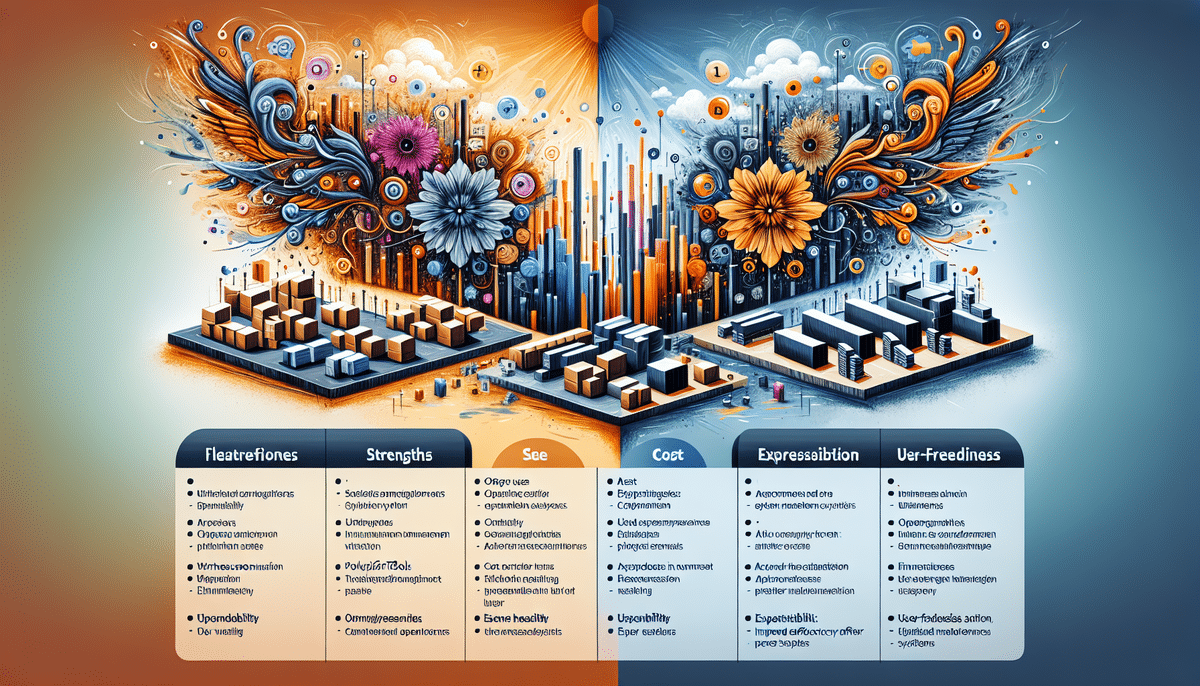Introduction to Warehouse Management Solutions
Efficient inventory management and order fulfillment are critical components for the success of any business. Selecting the right warehouse management system (WMS) can significantly enhance operational efficiency, reduce costs, and improve customer satisfaction. Two leading solutions in this domain are Oracle Warehouse Management Cloud (WMS) and SPS Commerce Fulfillment (EDI). This article offers an in-depth comparison of these platforms to help businesses determine which best aligns with their needs.
Overview of Oracle WMS and SPS Commerce Fulfillment
Oracle Warehouse Management Cloud (WMS)
Oracle WMS is a cloud-based solution designed to optimize warehouse operations. It provides real-time visibility into inventory levels, automates order fulfillment processes, and enhances warehouse space utilization. Oracle WMS integrates seamlessly with other Oracle Cloud solutions, offering a comprehensive end-to-end supply chain management system.
According to a Gartner report, Oracle WMS is recognized for its robust functionality and scalability, making it suitable for large enterprises with complex warehouse needs.
SPS Commerce Fulfillment (EDI)
SPS Commerce Fulfillment specializes in Electronic Data Interchange (EDI) solutions, facilitating automated and optimized order fulfillment processes. It enables seamless communication between trading partners, allowing for the electronic exchange of orders, invoices, and other critical documents without manual intervention.
Industry analyses highlight SPS Commerce Fulfillment for its ease of integration with various business systems and its scalability, catering to both small businesses and large enterprises. For more details, refer to the Forrester Wave report on EDI solutions.
Key Features and Capabilities
Oracle WMS Features
- Real-Time Inventory Tracking: Provides up-to-the-minute visibility of inventory across multiple warehouses.
- Automated Order Fulfillment: Streamlines picking, packing, and shipping processes.
- Advanced Analytics: Offers comprehensive reporting and data-driven insights to enhance decision-making.
- Integration with Oracle Cloud: Seamlessly connects with Oracle ERP, Transportation Management, and Global Trade Management.
SPS Commerce Fulfillment Features
- EDI Communication: Facilitates electronic exchanges between trading partners, reducing errors and processing time.
- Order Management: Centralizes order processing, tracking, and fulfillment.
- Scalability: Adapts to varying business sizes, from startups to large enterprises.
- Integration Flexibility: Connects with numerous ERP, WMS, and e-commerce platforms.
Benefits Comparison
Benefits of Oracle WMS
- Comprehensive Functionality: Covers the entire warehouse management lifecycle, from receiving to shipping.
- Scalability: Supports multiple warehouses and high transaction volumes, ideal for growing enterprises.
- Advanced Reporting: Enables detailed analysis of warehouse operations to identify improvement areas.
- Data Security: Incorporates role-based access, audit trails, and encryption to safeguard data.
Benefits of SPS Commerce Fulfillment
- Specialized EDI Capabilities: Enhances communication accuracy and reduces manual intervention.
- Cost-Effective Pricing: Offers a pay-as-you-go model, minimizing upfront investments.
- User-Friendly Interface: Simplifies order and inventory management with intuitive navigation.
- Reliable Customer Support: Provides 24/7 expert assistance to ensure smooth operations.
Cost Analysis
The cost structure of each solution varies based on business needs. Oracle WMS typically involves higher initial investments due to licensing fees, hardware requirements, and implementation costs. However, its extensive features and integration capabilities can lead to long-term savings through improved efficiency.
Conversely, SPS Commerce Fulfillment offers a more flexible pricing model with its pay-as-you-go approach, making it accessible for businesses with varying budgets. This model eliminates the need for significant upfront investments, allowing businesses to scale their expenditures in line with their growth.
For a detailed cost-benefit analysis, refer to the Capterra review on Oracle WMS pricing and the Capterra review on SPS Commerce Fulfillment pricing.
Suitability for Different Business Sizes
Small to Medium-Sized Businesses (SMBs)
SPS Commerce Fulfillment is highly suitable for SMBs due to its affordability, ease of implementation, and scalable features. Its ability to integrate seamlessly with popular e-commerce platforms like Shopify and Magento makes it an excellent choice for businesses looking to streamline their order fulfillment without hefty investments.
Large Enterprises
Oracle WMS is ideally suited for large enterprises that require a robust and comprehensive warehouse management solution. Its advanced features, scalability, and seamless integration with other Oracle products support complex warehouse operations and high transaction volumes, ensuring that large businesses can maintain efficiency and accuracy in their supply chain processes.
Case Studies
Oracle WMS Implementation
Festo, a global leader in automation technology, leveraged Oracle WMS to enhance its warehouse operations. The implementation resulted in a 40% increase in warehouse capacity and a 50% reduction in order-to-delivery time, showcasing the system's ability to drive significant operational improvements.
Source: Oracle Customer Success Story
SPS Commerce Fulfillment Implementation
PureFormulas, a prominent online retailer in the health and wellness sector, adopted SPS Commerce Fulfillment to optimize its order processing. This transition led to an 80% decrease in order processing time and virtually eliminated manual data entry errors, highlighting the solution's effectiveness in enhancing operational efficiency.
Source: SPS Commerce Case Study
Integration with Other Systems
Both Oracle WMS and SPS Commerce Fulfillment offer extensive integration capabilities, ensuring seamless data flow across various business systems.
Oracle WMS Integrations
SPS Commerce Fulfillment Integrations
Future Developments
Both platforms are continuously evolving to meet the dynamic needs of businesses.
Oracle WMS
Oracle is expected to enhance its WMS with more advanced AI and machine learning capabilities, providing predictive analytics and further automating warehouse operations. Additionally, deeper integrations with IoT devices are anticipated to improve real-time tracking and inventory management.
SPS Commerce Fulfillment
SPS Commerce Fulfillment plans to expand its EDI capabilities by integrating with more e-commerce platforms and incorporating blockchain technology for enhanced security and transparency in transactions.
Conclusion: Making the Right Choice
Choosing between Oracle WMS and SPS Commerce Fulfillment depends largely on your business's specific needs and scale. If your operations require a comprehensive, scalable warehouse management solution with extensive integration capabilities, Oracle WMS is a strong contender. On the other hand, if you prioritize streamlined order fulfillment and EDI communication with a cost-effective and flexible solution, SPS Commerce Fulfillment is likely the better fit.
Carefully assess your business requirements, budget, and long-term growth plans to select the solution that best supports your operational goals.






















